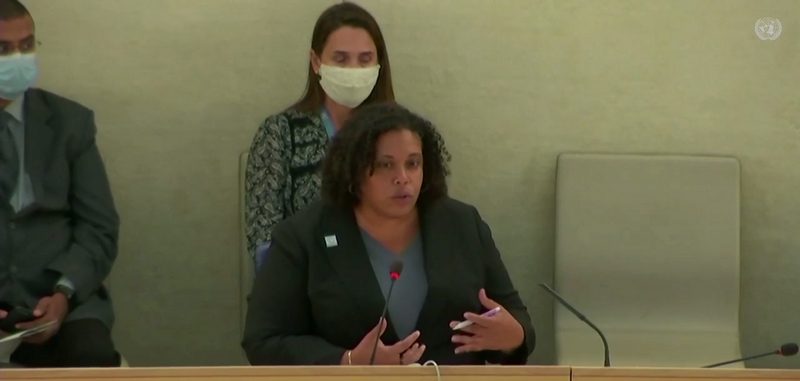By: Mutua Kobia and Buba Ceesay
Climate change is affecting people of color more than others, a report shows. The UN Working Group on people of African Descent held an Interactive Dialogue at the 48th session of the Human Rights Council, to present their report “Environmental Justice, the Climate Crisis and people of African Descent.” They presented their annual results, noting the difficulties and restrictions posed by the COVID-19 pandemic that had a direct impact on their mandated activities. Further to this, the Group presented their analysis of the impact of the COVID-19 on people of color and law enforcement violence rooted in historic racism.

The Working Group noted how environmental racism is a serious issue in all parts of the world. Although natural disasters affect different groups disproportionately, the main focus was the impact of extractive industries, mining areas, polluting factories and power plants and other hazardous activities. In fact, much of these adverse impacts on people of African Descent is a “bi-product of ongoing economic reliance on extraction, exploitation and accumulation through dispossession”. In their analysis it was also found that the changing climates due to human activity is linked to racialized economic and political frameworks. In this regard, the group pointed out that a human rights approach is needed in order to effectively address and tackle climate change. Additionally, states must include people of African Descent in the “decision-making at all stages, including preparedness, mitigation, response, and recovery.” Governments must take responsibility for the consequences of the climate crisis and comply with their obligations to monitor and protect people of African descent by adequate policies. In addition, the President pointed out the lack of people of African descent in key conversations and decision-making on environmental issues.
Delegations congratulated the Working Group for its comprehensive report and recognized the need to involve Afro-descendants in the “decision-making at all stages, including preparedness, mitigation, response, and recovery.” Further to this, the Group pointed out that a human rights approach is needed in order to effectively address and tackle climate change.
Geneva International Centre for Justice reiterates the Working Group’s recommendations especially with addressing environmental issues with a human rights approach and urges the international community to take the necessary steps to end the suffering of people of African descent. Furthermore, GICJ is deeply concerned with the rise in racism, racial discrimination and other forms of intolerance and more-so that the efforts by states to combat these evils are minimal. Therefore, we stress the international community to go beyond rhetoric and ensure that effective measures are taken.
Additionally, GICJ is especially concerned with the recent suppression of the Durban Declaration and Program of Action that is being undermined by some states as well as the recent boycott campaigns against the DDPA. In this regard, we reiterate that the DDPA is the most comprehensive document that addresses racism, racial discrimination and other forms of intolerance with an approach and guidelines in tackling contemporary forms of racism.
Justice, Human rights, Geneva, geneva4justice, GICJ, Geneva International For Justice












